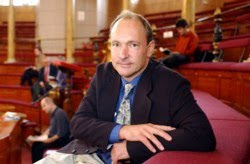
At i-camp, the problem we will be trying to solve is:
How might I commercialise our final year project?
You will be looking at your projects from the enterprise perspective. There are a wide range of projects in the final year group: games, animations, compositions, computer systems, strategies, etc. Your
mission in this module (starting at i-camp) will be to come up with ideas about how to develop it, change it, pitch it at a particular market as a means of making a living from this activity.
One technique that you might use to generate ideas for this is SCAMPER. This technique allows a group of people to brainstorm alternatives and decide on potential answers. In its way, I suppose, it is the problem solving equivalent to a group of musicians jamming their way to a new composition.
"Each letter in the acronym represents a different way you can play with the characteristics of what is challenging you to trigger new ideas:
S = Substitute
C = Combine
A = Adapt
M = Magnify
P = Put to Other Uses
E = Eliminate
R = Rearrange (or Reverse)"(2)
Let's run through an example and explore how SCAMPER provides triggers to get our ides flowing. Take one of last year's projects. This project was to produce a social networking site for university students. Let's use a few SCAMPER questions, chosen using the random generator, to help us to brainstorm ideas.
(Substitute) Can I use this idea in a different place?
The project was aimed at UK university students. Could we target an overseas market? This might be young people living abroad - one of the group was from Hong Kong and keen to apply it to that market.
(Adapt) Whom could I emulate?
My favourite musician, Sir Paul McCartney, sometimes uses this to begin writing a new song. For instance, on
Chaos and Creation in the Back Yard, he tried to emulate the late George Harrison on
Friends to Go and on
Anyway he composed the piece trying to sound like Randy Newman. It seems that thinking about how someone else might carry out the task can be a spur to even the most creative of individuals!
(Magnify) What can be magnified or made larger?
One student in this group was from the International faculty, taking Spanish. He had the idea that the 'budying' aspect of this could be amplified. This led him to explore how it could be turned into a system for foreign students at Leeds Met to buddy up with home students who are studying their language.
(Put to other use) What else can it be used for?
The project brief was to develop a social networking system for university students. One of the students was very interested in fashion in Hong Kong and had the idea of putting the project to this use. He evetually settled on the idea of a social networking system for those planning a wedding in HK.
(Eliminate) What features could I understate or omit?
Under this heading the students might have discussed whether removing some of the features might have altered the project and made it more saleable or usable in a particular market.
(Rearrange) What if I try doing the eact opposite of what I intended?
What if they turned the project on its head and instead made it a system that was a networking system about students but not for students' use? Perhaps it could be a means for tutors to contribute to an online reference for students.
I trust you now can see how one group might have used SCAMPER to generate ideas for turning your final year project into an enterprsie.
There will be plenty of time for this verbal jamming(3) with your project team and a range of different people at i-camp.
Notes
(1) The image of the drummer in the band Scamper is taken from
http://www.flickr.com/photos/mike-burns/129226539/sizes/m/
(2) Source: Passuellio J (2008) Creative Problem Solving with SCAMPER http://litemind.com/scamper/ [Accessed 5th February, 2008]
(3) I hope your jamming is more tuneful than this rare footage of the
Beatles jamming!













 Most local authority innovation is what Christensen calls 'sustaining technology'. These innovations "improve the performance of established products, along dimensions of performance the mainstream customers in major markets have historically valued." (Christensen, 1997, pp. XV). In a future blog we shall consider an example of council innovation which might be considered to be a 'disruptive' technology.
Most local authority innovation is what Christensen calls 'sustaining technology'. These innovations "improve the performance of established products, along dimensions of performance the mainstream customers in major markets have historically valued." (Christensen, 1997, pp. XV). In a future blog we shall consider an example of council innovation which might be considered to be a 'disruptive' technology.